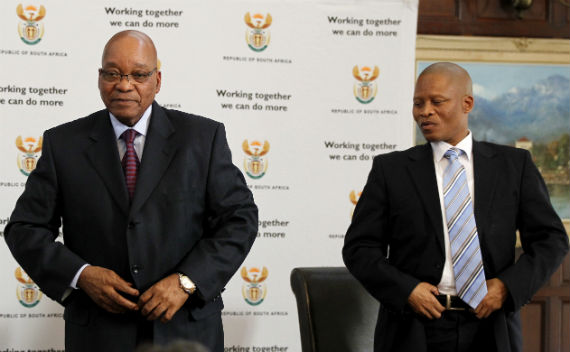South Africa: Zuma, Mogoeng, and Malema
More on:

Anxiety levels in the South Africa business community, which has a large white component, are probably rising. President Jacob Zuma, against the advice of the formal opposition Democratic Alliance and numerous human rights advocacy organizations, has appointed Mogoeng Mogoeng as chief justice of the Supreme Court. Opponents have accused him of being homophobic and chauvinistic, as I blogged last week.
At same time, ANC youth league leader Julius Malema was recently found guilty of hate speech (which does not punish him beyond forcing him to pay court fees) for singing “Shoot the boer” last year. Since then, Malema’s rhetoric has become yet more strident and last Saturday he called for "economic war" on whites. Malema will finally face an internal disciplinary hearing on Thursday for bringing the ANC into ill repute with his calls for mine nationalization, land redistribution, and overthrow of the Botswana government.
Zuma continues to walk a tight rope between quelling the anxieties of the business community and encouraging investment in the economy, and addressing the needs of the ANC’s overwhelmingly black and poor constituency. It should be noted the new chief justice was already serving on a high court, and was endorsed by the Judicial Service Commission, a body mandated to advise on these matters, and composed of sitting judges, and appointees from the various branches of government (as well as few others).
So, to me, Zuma’s choice is credible and will likely be welcomed by the majority of the population. Malema’s escalating rhetoric, however, is going to continue to be a problem because it will be publicized outside of South Africa, not least because it is so incendiary.
More on:
 Online Store
Online Store